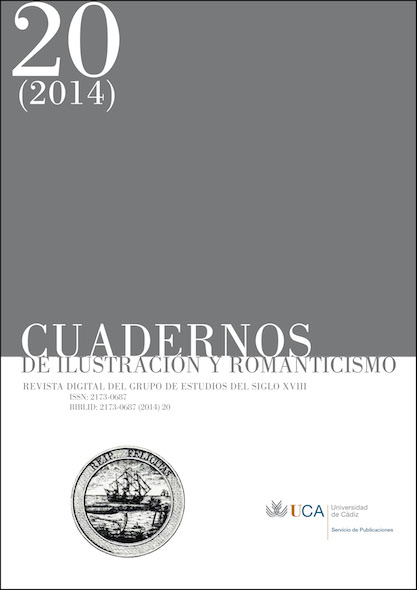Ideological and diegetic function of maids in novels by Júlio Dinis and Eça de Queirós: the cases of Antónia (Una familia inglesa) and Juliana (O primo Basílio)

DOI
https://doi.org/10.25267/uad_Ilus_Romant.2014.i20.09Info
Abstract
Servants, and especially maids, were very common social types in nineteenth-century cities. In realist novels these were important characters, despite their social irrelevance, to create the illusion that literary fiction of the time accurately portrayed external reality. A comparison between the maids Antónia, from Uma família inglesa, and Juliana, from O primo Basílio, also allows us to look at different ways of representing fictional characters in liberal and bourgeois realism (Júlio Dinis) and in naturalistic realism (Eça de Queirós).
Keywords
Downloads
How to Cite
License

This work is licensed under a Creative Commons Attribution-NonCommercial-NoDerivatives 4.0 International License.
The papers published in this journal are the property of Cuadernos de Ilustración y Romanticismo: the source must be cited whenever they are used.
The authors retain the copyright © and grant the journal the right to publish. They may host their work in the final published version on personal websites or websites intended for scientific dissemination, provided that they indicate the source.






